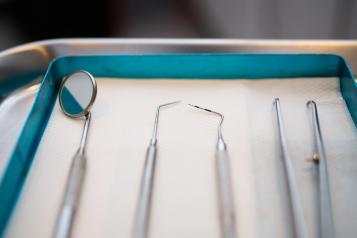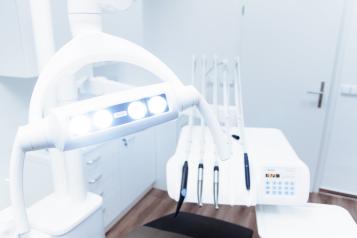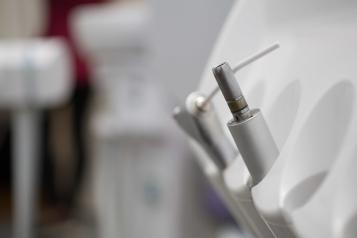Healthwatch England announce dental crisis

Healthwatch West Sussex has heard from many people who are facing problems accessing an NHS dentist. We have raised these issues with NHS England who commission dental services, local MPs, and local NHS leaders. On the 19 November 2020, the three local Healthwatch in Sussex met with NHS England where we raised our concerns.
Healthwatch West Sussex has listened and collect local stories throughout the pandemic, which have been reported and these have helped to evidence the concerns we have raised. We asked Healthwatch England to exert pressure on NHS England to improve access to dental services and clarify important issues for the public which was agreed.
Healthwatch England’s full press release is below:
Patient champion warns of dentistry crisis as public concerns continue
- New data gathered by Healthwatch England shows access to NHS dentistry remains a huge problem for the public amid the COVID-19 pandemic.
- Low-income households at greater risk of being denied treatment where only private appointments are available.
- Healthwatch calls on Government, the NHS and the dental profession to work with patients to fix systemic issues in dental care.
Healthwatch England warns urgent action is needed to address issues with access to NHS dental care as public concerns persist.
Healthwatch continues to hear concerns about dentistry which were highlighted at the end of last year in the Dentistry and the impact of COVID-19 report after the patient champion saw a 452% rise in calls and complaints over the summer (July – September).
In a follow-up review, Healthwatch looked at 1,129 people’s experiences of accessing dental care received between October and December 2020 and found:
- Access to dentistry was difficult for more than seven in 10 people (72%), with some people actively seeking dental treatment being told they would have to wait anywhere between a few months to, in one case, two years for an appointment.
- Access to urgent NHS treatment was difficult for both people with painful teeth, with patients being told that dental pain was not considered an “emergency”, and those who were prescribed multiple courses of antibiotics by NHS111 without being provided any further treatment.
- Examples of the extreme lengths some people went to, to get treatment, include calling over 40 practices to find an NHS dentist, and pulling their own teeth out when they couldn’t bear the pain.
- When dentists couldn’t offer an appointment, they advised people to buy dental repair kits to treat themselves. In one case, an individual was advised to use a nail file to deal with the sharp edges of a broken tooth.
The findings come after some MPs and the British Dental Association called on the Government to scrap its new targets for NHS dentists, which require them to deliver 45% of their pre-pandemic levels of dental activity.
There are concerns this is likely to push practices into prioritising appointments such as check-ups over emergency or more complex longer treatments.
Healthwatch England previously called for more emphasis to be placed on solving structural issues within NHS dental services and warns dental care is facing an immediate crisis without the Government stepping up to the plate.
Sir Robert Francis QC, Chair of Healthwatch England, said: “Our findings show that access to dental care is currently neither equal nor inclusive, leading to traumatic experiences for many people.
“This provides yet more evidence that the COVID-19 pandemic has exacerbated the human impact of years of structural issues in NHS dentistry and is now pushing it to crisis point. We are hugely concerned that this will have detrimental effects to the nation’s health for years to come.
“Although we have to grapple with the pandemic, all efforts should be made to treat those in need of urgent care and provide more accurate and up-to-date information to help people find and access NHS dental care.
“In the longer term, the Department of Health and Social Care must prioritise the importance of oral health and commit to improving access to dentistry for everyone who needs it.”
Dental findings: affordability
Healthwatch’s findings also suggest that patients are being told that although NHS appointments are not available, they can be treated privately. This creates a real barrier for everyone, and in particular for people on low income, to receive vital treatment.
While one individual was charged £500 for an extraction of a single tooth, another person was offered a procedure for £1,700, which was £60 on the NHS.
Paul, from Dorset, needed a new crown fitted after his old one got very loose. He explained:
“I called a local dentist and was told they could take a look on a private care as no NHS dentist would see me. They replaced it with a temporary crown, which cost me £110, and quoted me £2000 for a permanent one. I was warned to get it fixed permanently or would get an abscess. I spent the next week calling every dentist in Dorset and no one would see me on NHS."
Paul eventually found a local "Mydentist", a private alternative to NHS dental care, which offered the treatment for a total of £700 - a more affordable option for Paul.
"After three months of being in pain, I am having treatment now (...) In my experience, the NHS dental service doesn’t exist. The broken system is easily blamed on the pandemic. However, you can still get a private dentist, but not on NHS. I spent weeks and weeks in so much pain and ate very little, feeling tired and exhausted – this is not an experience I ever want to go through again.”
Dental findings: the impact of COVID-19
Communication between dental providers and patients also remains an issue, with some people being unable to find information about which local NHS dentists have started to do routine check-ups and if any are taking on new NHS patients following closures during the first lockdown.
Dentists’ appointments were cancelled without notifying the patients or providing them with any information about when they could reschedule their visit.
Some appointments were cancelled as dentists were unable to provide safe care without adequate PPE. Healthwatch Havering found out that one in four dental practices in their area were charging extra for PPE.
Overall figures show nearly three in five people (58%) expressed negative sentiments about dentistry, compared with one in two (51%) in the previous three months. There was however a noticeable increase in the amount of positive feedback about dentistry, with just over one in 10 (12%) saying something positive, compared with one in 25 (four percent) between July and Sept 2020.


